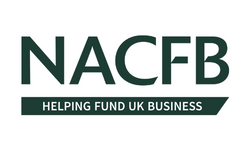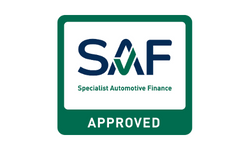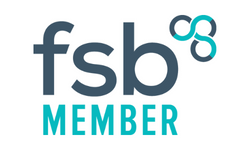Start your future in finance with Brokerplan Academy
How to Become a Commercial Finance Broker in the UK
Becoming a commercial finance broker in the UK can be a rewarding career path for individuals interested in financial services, business, and problem-solving.
The role involves connecting businesses with the right lenders to secure funding for their growth, acquisitions, or operational needs.
This article outlines the steps to establish yourself in this dynamic field, including the role of the Financial Conduct Authority (FCA) in regulating the industry.

A commercial finance broker acts as an intermediary between businesses seeking finance and lenders offering it.
This can include arranging loans, asset finance, invoice factoring, or property finance.
Brokers assess the financial needs of businesses, source suitable funding solutions, and provide advice on terms and conditions.
Strong interpersonal skills, analytical abilities, and a deep understanding of financial products are crucial for success in this role.
To thrive as a commercial finance broker, you should build expertise in financial analysis, risk assessment, and business development.
Educational qualifications such as a degree in finance, business, or economics can provide a solid foundation. However, practical experience in banking, finance, or sales is equally valuable.
Industry certifications, such as those offered by the Chartered Institute for Securities & Investment (CISI) or the London Institute of Banking & Finance, can enhance your credibility and knowledge.
![]()
In the UK, many activities carried out by commercial finance brokers fall under the regulatory oversight of the Financial Conduct Authority (FCA).
The FCA ensures that brokers operate fairly, transparently, and in the best interests of their clients.
To become FCA-authorised, you will need to:
- Register as a Sole Trader or Limited Company: Decide on your business structure and register with Companies House if applicable.
- Apply for FCA Authorisation: Complete an application via the FCA’s Connect system, providing detailed information about your business, compliance procedures, and financial stability.
- Demonstrate Compliance: Ensure you have systems in place to comply with FCA rules, including Treating Customers Fairly (TCF), Anti-Money Laundering (AML) measures, and data protection regulations.
The FCA’s approval process can take several months, and there are fees involved.
It is advisable to consult compliance professionals to ensure your application meets all requirements.
Establishing a network of lending partners is essential for offering diverse financial solutions to your clients.
Build relationships with banks, alternative lenders, and specialist finance providers. This will allow you to cater to a wide range of business needs and enhance your value proposition.
Find out more about Access to Lenders HERE
For those looking to enter the commercial finance broker industry without directly applying for FCA authorisation, the Appointed Representative (AR) model can be an attractive option.
Under this model, an individual or firm acts as an AR under the supervision of a principal broker that is already FCA-authorised.
This arrangement allows the AR to carry out regulated activities using the principal broker’s compliance framework and regulatory umbrella.
The relationship between the AR and the principal broker is built on mutual benefit:
- Principal Broker Responsibilities: The principal broker ensures that the AR adheres to regulatory requirements and provides guidance on compliance, processes, and best practices. They also conduct ongoing monitoring to ensure the AR operates ethically and professionally.
- AR Responsibilities: The AR focuses on generating business and servicing clients while relying on the principal broker for regulatory oversight. This arrangement allows the AR to leverage the principal broker’s established systems and expertise.
This model is particularly beneficial for new entrants or small brokers who may not have the resources or capacity to meet the full regulatory demands independently.
It allows them to focus on building their business while operating within a compliant framework provided by the principal broker.
Learn more about Brokerplan’s AR Model HERE
To attract clients, you will need a robust marketing strategy. This includes:
- Creating a professional website
- Leveraging social media
- Networking within business communities.
- Partnering with accountants, solicitors, and business advisors who can help generate referrals.
The financial services landscape is constantly evolving. Staying up-to-date with industry trends, regulatory changes, and emerging financial products is essential.
Brokers must complete 35 hours of Continuing Professional Development (CPD) each year.
Attend industry events, participate in training programs, and join professional associations to remain competitive.
Professional Commercial Finance Broker Organisations

NACFB
The National Association of Commercial Finance Brokers
https://nacfb.org/

FIBA
The Financial Intermediary & Broker Association
https://www.fiba.org.uk/
The earning potential for a commercial finance broker can be significant, depending on your expertise, network, and the volume of business you generate.
Brokers typically earn through commission-based structures, either as a percentage of the loan value or through fees charged to clients.
Experienced brokers with established networks can earn a six-figure income annually.
Building a strong reputation and maintaining long-term client relationships are key to maximising your income.
Find out more about Earning Potential HERE
Conclusion
Becoming a commercial finance broker in the UK requires a combination of skills, regulatory compliance, and a proactive approach to building relationships.
The Financial Conduct Authority plays a pivotal role in ensuring that brokers operate ethically and transparently.
By understanding these requirements and investing in your professional development, you can establish a successful career in this thriving industry.






